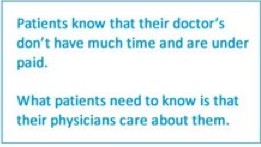Being social can be understood on two levels; on the superficial level it evokes the image of being pleasant at a cocktail party, or going out with friends once a week. But on a more profound level it means a sense of belonging to a widening circle of community, from family, to tribe, and nation, and humanity. Which leads us to next question: where is this sense of sociality coming from? Is it biologically ingrained, or is it a cultural artifact, a mere veneer over our innate selfish nature?
In his delightful book “Thinking Fast and Slow,” the eminent psychologist and founder of the field of behavioral economics, Daniel Kahneman, describes two systems that shape our thinking. System 1 is intuitive, fast, comprising impressions, emotions, and pattern recognition.( System 2 is laborious, analytical, and is recruited only when System 1 is inadequate for the task). Pattern recognition is especially important.
Repeatedly encountering a word, a name, a face, a situation, gives us a sense of familiarity, of feeling comfortable with it. This has deep evolutionary roots. Even mice have it. Put a mouse in a cage with an opening to a dark tunnel and put a dummy of cat in the cage. On first encounter the mouse will not come out of his tunnel, even though morsels of cheese are beckoning.. On subsequent encounters he will become bolder, until finally totally ignoring the cat. The implications of this simple observation are profound: repeatedly seeing you parents, your extended family, your friends, your tribe, gives you a sense of familiarity, of what psychologists call cognitive ease. Here is how the famed psychologist, Zajonc, quoted in Kahneman’s book, put it:
“The consequences of repeated exposures benefit the organism in its relations to the immediate animate and inanimate environments. They allow the organism to distinguish objects and habitats that are safe from those that are not., they are the most primitive basis of social attachments. Therefore, they form the basis for social organization and cohesion -the basic source of psychological and social stability“.
What a breathtaking leap from psychological observations to the basis of our sociality. But if indeed such a behavioral trait is ingrained, or shall we say hard-wired, where is the biological evidence?
A recent paper in Nature ( vol. .501, pp. 179-184, 2013) titled “Social rewards requires coordinated activity of nucleus accumbens oxytocin and serotonin” provided the necessary evidence. Nucleus accumbens is part of the brain reward system that has evolved to motivate behaviors that were important for survival and reproduction (food, water, copulation). The recent addition of drug addiction is an unintended consequence of this evolutionary development. Oxytocin, the “love hormone”, has long been associated with mother-child bonding. But the shift to social living preceded the emergence of pair-living by 35 million years. In other words, sociality and its traits (vocal communication, imitation, empathy) is imperative for our survival. And what about serotonin? Isn’t dopamine the neurotransmitter associated with reward? Here we tread into terra incognito. Are there two systems of reward? Is there interaction between the two? Further experiments will undoubtedly clarify this point. The paper is complicated, highly technical, but the bottom line is: we are hard-wired for sociality, for empathy, for loving our fellow human beings.
In these days of rampant libertarianism, a philosophy stretching from Ayn Rand to Rand Paul, one wonders about the psychological and biological bases for its assertions. I am not going to analyze Ayn Rand’s faux philosophy of “objectivism”; a few choice quotes will suffice.
She describes objectivism as “”the concept of man as a heroic being, with his own happiness as the moral purpose of his life, with productive achievement as his noblest activity, and reason as his only absolute“. (Rand, Ayn (1992) [1957]. Atlas Shrugged (35th anniversary ed. New York: Dutton. ISBN 0-525-94892-9). She said the individual should “exist for his own sake, neither sacrificing himself to others nor sacrificing others to himself.” ( Rand, Ayn (1989). Peikoff, Leonard, ed. The Voice of Reason. New York: New American Library.ISBN 0-453-00634-5). She referred to egoism as “the virtue of selfishness” in her book of that title ( Kukathas, Chandran (1998). “Rand, Ayn (1905–82)”. In Craig, Edward (ed). Routledge Encyclopedia of Philosophy 8. New York: Routledge. pp. 55–56. ISBN 0-415-07310-3). Never mind that the biology of our species is antithetical to these assertions. Critical reading of her writing reveals a shallow mind, and a philosophy that would have earned her an F grade in an introductory philosophy course. Her “intellectual” heirs, Rand Paul and his quirky father Ron, don’t merit much discussion either; they are shallower then her: they don’t even pretend to have a coherent social philosophy.
So what does biology tell us about the future of Libertarianism? Here the message is hopeful. Like all other human-invented isms, if they don’t have a basis in our evolutionary imperatives, our brain wiring, our very existence as living organisms -they are doomed to extinction. The unmistakable trend toward communitarianism in our country, the sense that we are all in it together, is nothing but our biology asserting itself.







